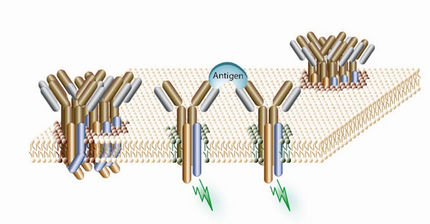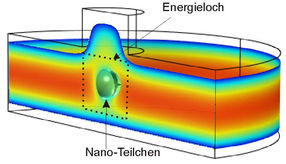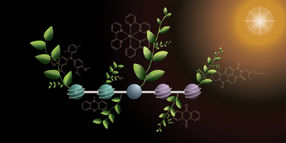Pieris successfully demonstrates proprietary biotherapeutics platform: Dual targeting with Duocalin technology
Advertisement
Pieris AG announced that its proprietary Duocalin® technology has successfully demonstrated dual targeting potential. Commenting on this development, Dr Andreas Hohlbaum, Director of Science and Preclinical Development of Pieris said: "As Pieris continues to validate the therapeutic application of its technologies, dual targeting is viewed as a major step forward. Combining the benefits of bivalent, avid binding of disease targets with the ability to modulate two targets at once shows the clear development potential of the Duocalin® technology to treat multi-factorial diseases".
Using individual monomeric Anticalins® selected to have picomolar binding affinity to distinct determinants on two defined clinically validated targets, Pieris has constructed Duocalins® as monomeric, bivalent binding proteins that retain target specificity and affinity regardless of the structural orientation of their binding domains. Furthermore, the high intrinsic stability of Duocalins® is comparable to monomeric Anticalins®, offering flexible formulation and delivery potential for Duocalin®-based drug candidates.
Despite the low molecular weight of monomeric Anticalins® relative to antibodies, their core scaffold provides a highly selective binding site with high structural plasticity and an extensive binding surface comparable to that achieved with antibodies. The adaptability of the Anticalin® scaffold has already allowed Pieris to develop therapeutic and diagnostic product candidates with custom designed functionality. Duocalins® allow multiple targets to be bound and modulated through a single molecule, which is particularly advantageous in diseases known to involve more than a single causative factor. Moreover, bi- or multivalent binding formats such as Duocalins® have significant potential in targeting cell surface molecules in disease, mediating agonistic effects on signal transduction pathways or inducing enhanced internalization effects via binding and clustering of cell surface receptors.
Other news from the department research and development
Most read news
More news from our other portals
See the theme worlds for related content
Topic world Antibodies
Antibodies are specialized molecules of our immune system that can specifically recognize and neutralize pathogens or foreign substances. Antibody research in biotech and pharma has recognized this natural defense potential and is working intensively to make it therapeutically useful. From monoclonal antibodies used against cancer or autoimmune diseases to antibody-drug conjugates that specifically transport drugs to disease cells - the possibilities are enormous

Topic world Antibodies
Antibodies are specialized molecules of our immune system that can specifically recognize and neutralize pathogens or foreign substances. Antibody research in biotech and pharma has recognized this natural defense potential and is working intensively to make it therapeutically useful. From monoclonal antibodies used against cancer or autoimmune diseases to antibody-drug conjugates that specifically transport drugs to disease cells - the possibilities are enormous





























































